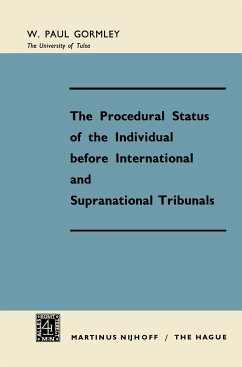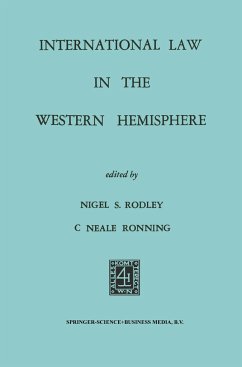The most important sipgle factor in guaranteeing the effective pro tection of human rights - including economic and property interest- is that private individuals and groups be capable of maintaining a judicial action against any sovereign State causing them injury. Thus, individuals must possess the necessary locus standi at both the regional and international levels. A private individual must be able to prosecute an action before an international tribunal - in his own name - against an offending Government, particularly his own. Unfortunately, this necessary right of action was not recognized under traditional internatio nallaw. It is only very recently, since the adoption of the European Convention of Human Rights and the Establishing Treaty of the Common Market, that nongovernmental entities have achieved locus standi before international courts. As this book is being written, it is no longer valid to hold that only States are procedural subjects of international law. Nevertheless, it must - tragically - be conceded that individuals do not enjoy the same standing as Member States. This same generalization applies to the United Nations. Starting with the proposition that the individual is a subject of the Law, this book not only analyses examples supporting this viewpoint, but it concentrates on the more important shortcomings, primarily those existing within the Council of Europe, the European Economic Community, and the United Nations. Therefore, recommendations are offered as to the specific improvements that must be made.
Hinweis: Dieser Artikel kann nur an eine deutsche Lieferadresse ausgeliefert werden.
Hinweis: Dieser Artikel kann nur an eine deutsche Lieferadresse ausgeliefert werden.








